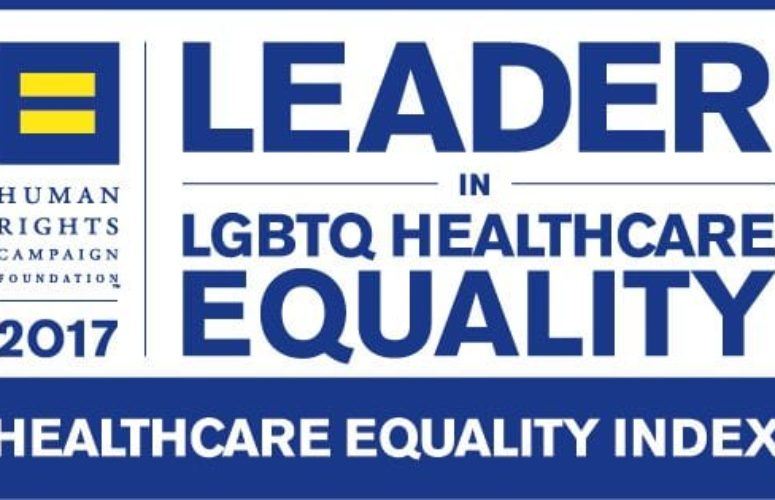
Hackensack Meridian Health Expands Bear’s Den Innovation Hubs
On Mar 26, 2019Hackensack Meridian Health is expanding its Bear’s Den innovation program to all hospitals to encourage the network’s 34,000 team members to bring forth their best ideas to improve care delivery and enhance patient satisfaction.
“Bear’s Den has been a winning strategy for Hackensack Meridian Health by supporting the next breakthroughs in care delivery and it’s time to include our dedicated team members who know best how to innovate from their valuable frontline experience,’’ said Robert C. Garrett, CEO of Hackensack Meridian Health.
To date, Bear’s Den has supported two major innovations through a $25 million fund: Pillo, a health robot for the home and PurpleSun, the only technology with a 90- second disinfection cycle to eliminate microorganisms to prevent hospital-acquired infections.
The Wall Street Journal called PurpleSun a “Game Changer in Health-Tech’’ and noted that PurpleSun is living up to claims it can partner with large healthcare providers to meet their important needs in the era of value-based care, which rewards hospitals and providers for keeping patients healthy and out of the hospital.
Launched in 2017, Bear’s Den features a panel of experts, including CEO Robert C. Garrett, leading physicians, key network executives, venture capitalists, patent attorneys, who gather regularly to vet proposals from entrepreneurs. The health network’s novel incubator has vetted many products and strategies to streamline care delivery, reduce infections, lower hospital readmissions and help patients partner in their care with physicians.
“Innovation is in our DNA at Hackensack Meridian Health,’’ said Andrew Pecora, M.D., president of Physician Enterprise and chief innovation officer.
Hackensack Meridian Health joined with the New Jersey Innovation Institute, an affiliate of the New Jersey Institute of Technology, bringing together engineers, scientists, health care experts and others to launch innovations to improve health care delivery. Hackensack Meridian created an Innovation Center where aspiring companies present their concepts to the center’s ideation group. Those deemed ready are presented to the “Bear’s Den” group of Hackensack Meridian’s Innovation Center to decide on investment.
By creating designated space in the network’s 17 hospitals, staff members from Bear’s Den will meet team members on site to discuss their ideas. Additionally, entrepreneurs will periodically visit the hospital locations and share their inspiring stories with team members to encourage them to innovate.
Increasingly, healthcare organizations are turning to technology to help achieve the “Triple Aim’’: to improve patient outcomes, enhance the patient experience and reduce costs. While U.S. healthcare spending has grown from five percent of GDP in 1960 to 17 percent in 2016, life expectancy in the U.S. has decreased in the last two years for the first time since the great flu epidemic from 1916 to 1918.
The first company Bear’s Den funded was Boston-based Pillo Health, a leading in-home digital care management company. Pillo leverages voice-first technology and artificial intelligence to connect patients at home with their care teams and family members.
Pillo will soon be part of a study lead by Dr. Laurie Jacobs Chair and Professor of Medicine Hackensack Meridian School of Medicine. The study will include about 100 patients who receive care for congestive heart failure from physicians at Hackensack University Medical Center, the network’s flagship hospital. Pillo reminds people to take medication at the appropriate time, dispenses their medications, digitally coordinates prescription refills and connects individuals in their homes with physicians, caregivers and loved ones.
One of Pillo Health’s primary goals is to support improvements in medication compliance. Prescription noncompliance adds a huge financial burden to the U.S. healthcare system, costing billions of dollars per year, according to the federal Centers for Disease Control and Prevention. Hospital admission rates increase for non-adherent patients with chronic illness by up to 69 percent, according to the CDC.
Meanwhile, PurpleSun utilizes a form of ultraviolet light energy to disinfect care areas. It has been piloted in operating rooms, post-acute care units, intensive care and emergency departments and has reported a 98 percent effectiveness in eliminating microorganisms in those areas, according to recent reports published in the American Journal of Infection Control.
Although significant progress has been made in preventing healthcare-associated infections, there is much more work to be done, according to the federal Centers for Disease Control and Infections. On any given day in the nation, about one in 31 hospital patients has at least one healthcare-associated infection, according to the CDC.
To access more business news, visit NJB News Now.
Related Articles:





